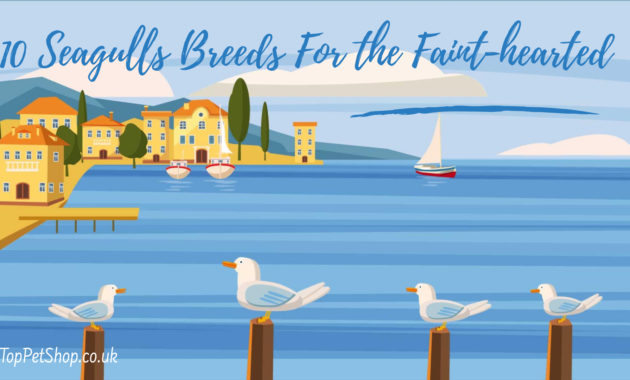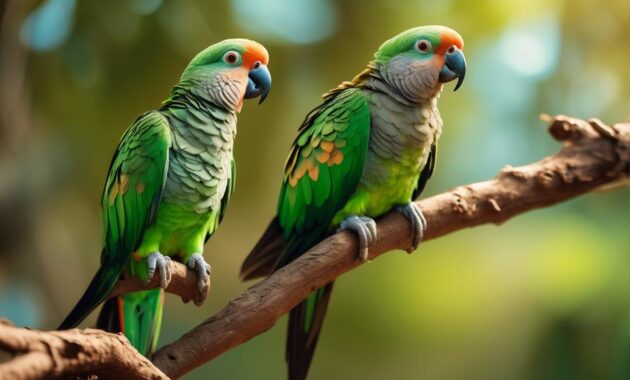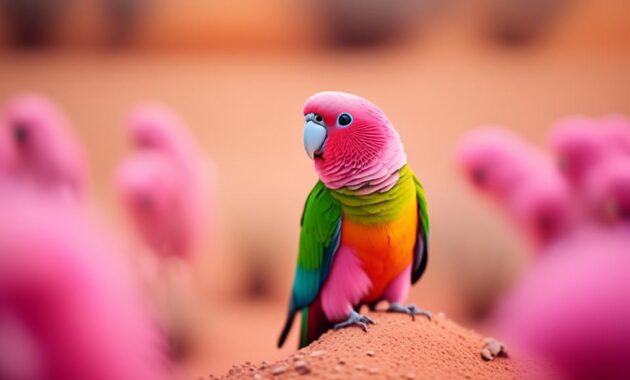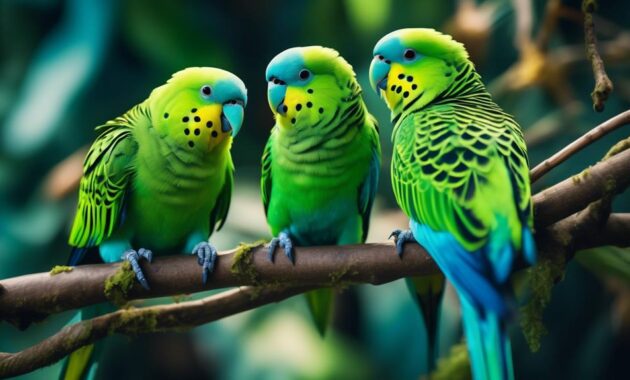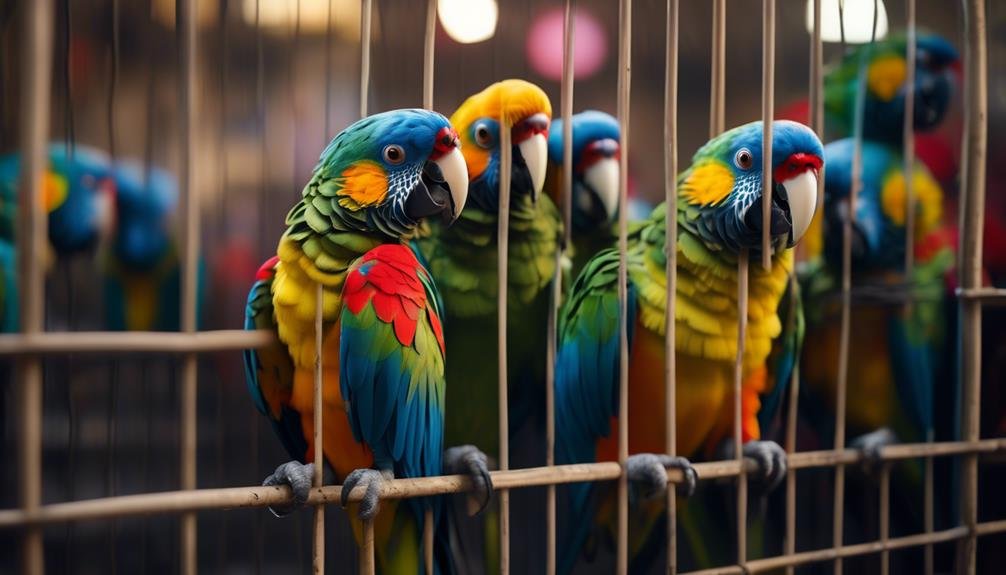
Have you ever stopped to consider the fascinating yet perilous relationship between international trade and the survival of rare parrot species?
In this discussion, we will shed light on the precarious situation faced by these magnificent creatures. From the devastating consequences of habitat loss and hunting to the escalating demand for parrots in the global pet trade, the challenges they confront are immense.
As we navigate through the intricate web of issues surrounding their existence, we will uncover the urgent need for stronger regulations and international collaboration. Brace yourself for a journey that will unravel the complexities of the international trade of rare parrot species and emphasize the crucial importance of conservation efforts.
Key Takeaways
- The Orange Winged Amazon is a long-lived parrot breed with a lifespan of up to 80 years.
- They are native to South America, particularly in countries like Brazil, Venezuela, and Ecuador.
- The Orange Winged Amazon has a distinct appearance with green body, yellow cheeks, and orange-tipped flight feathers.
- They are social and talkative birds that require ample space, exercise, and interaction with their owners.
Introduction to Rare Parrot Species
Rare parrot species are a fascinating group of birds that capture the attention of bird enthusiasts and conservationists alike. One such species is the Orange Winged Amazon, a beautiful parrot with striking colors and a talkative nature.
These parrots are approximately 13 inches long and can live up to 80 years, making them lifelong companions. They belong to the Amazon Parrot species and are commonly found in South America, particularly in Brazil, Venezuela, Ecuador, and other countries. With their green bodies, bright yellow cheeks, and patches of light blue feathers on their foreheads, they stand out in their natural habitat.
Orange Winged Amazons are known for their vocal abilities and can mimic sounds and repeat words. They’re social and affectionate birds that enjoy interaction and playful behavior with their owners.
However, these parrots face threats due to international trade and habitat loss, making their conservation vital for their survival.
The Impact of International Trade
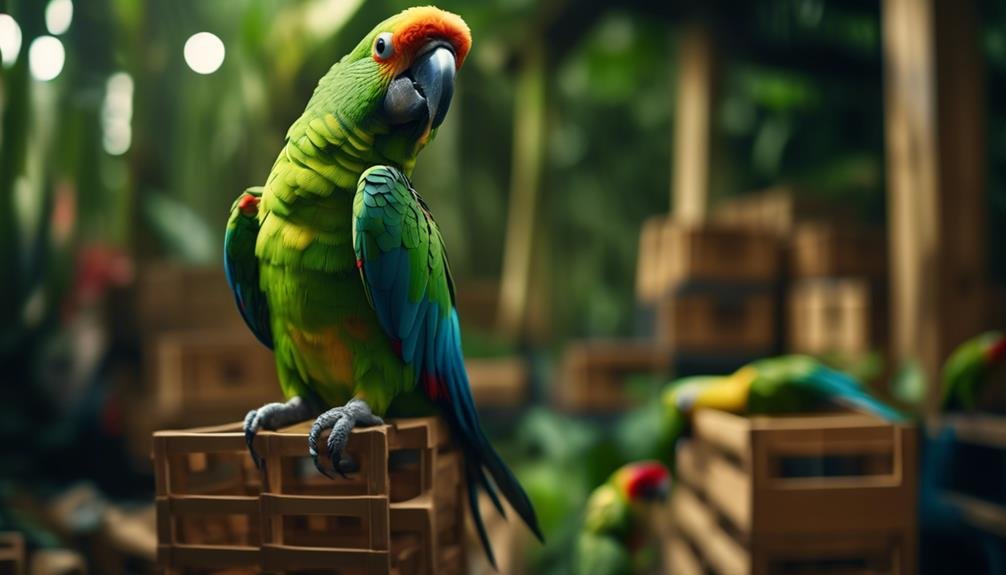
With their striking colors and talkative nature, Orange Winged Amazons have captured the attention of bird enthusiasts and conservationists. These beautiful parrots, native to South America, have become victims of illegal capturing and trading. It’s estimated that close to 100,000 of these parrots have been caught and traded internationally in just 8 years.
This unsustainable practice not only disrupts their natural populations but also puts them at risk of extinction. The demand for these parrots in the pet trade has led to their habitat loss and exploitation. It’s crucial that international efforts are made to address this issue and protect these rare parrot species from further harm.
Threats to the Survival of Rare Parrots
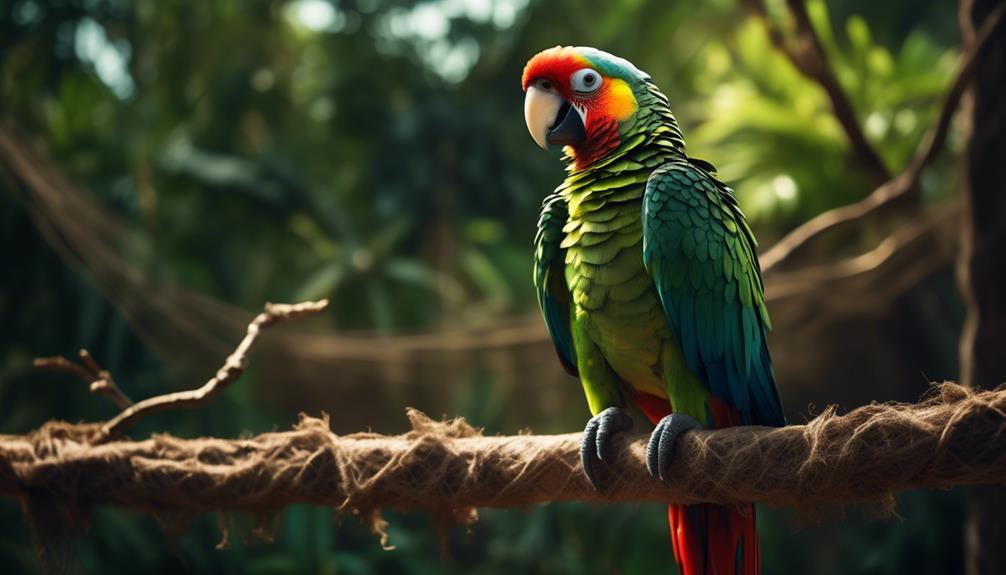
Illegal capturing and trading, along with habitat loss and exploitation, pose significant threats to the survival of rare parrots such as the Orange Winged Amazon. These threats endanger the existence of these magnificent birds in the following ways:
- Illegal capturing and trading puts immense pressure on the population of rare parrots, as they’re captured from their natural habitats and sold in the illegal wildlife trade.
- Habitat loss due to deforestation and urbanization destroys the natural habitats that rare parrots rely on for food, shelter, and breeding.
- Exploitation by indigenous communities and agricultural practices further contribute to the decline of rare parrots, as they’re hunted for food and their feathers.
- Poaching for the pet trade has a devastating impact on the population of rare parrots, as they’re taken from the wild and sold as exotic pets.
- Lack of conservation measures exacerbates the threats faced by rare parrots, as there’s a lack of legislation and enforcement to protect these vulnerable species.
It is crucial to address these threats and implement effective conservation strategies to ensure the survival of rare parrots like the Orange Winged Amazon.
Illegal Wildlife Trafficking
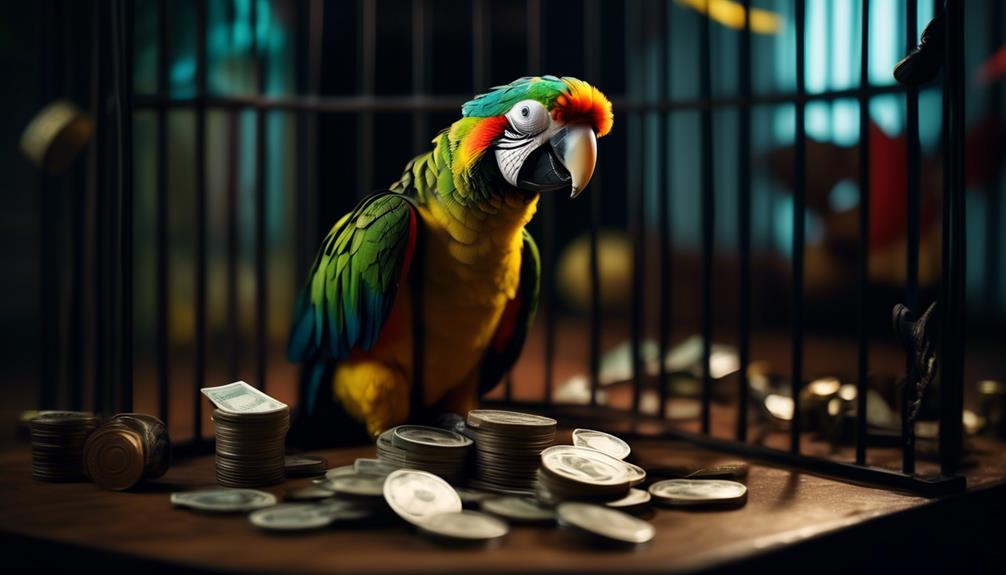
Illegal wildlife trafficking poses severe threats to the survival of endangered species like the Orange Winged Amazon. The high demand for these beautiful parrots in the international pet trade has led to a devastating impact on their populations. The capture and trade of these parrots disrupt their natural habitats, leading to habitat loss and fragmentation.
The process of capturing and transporting these birds is often cruel and inhumane, causing immense stress and suffering. Additionally, the illegal trade of these parrots contributes to the spread of diseases and parasites, further endangering their health and survival.
The Orange Winged Amazon, along with many other rare parrot species, urgently requires stronger enforcement of laws and regulations to combat illegal wildlife trafficking and ensure their protection for future generations.
Loss of Natural Habitat
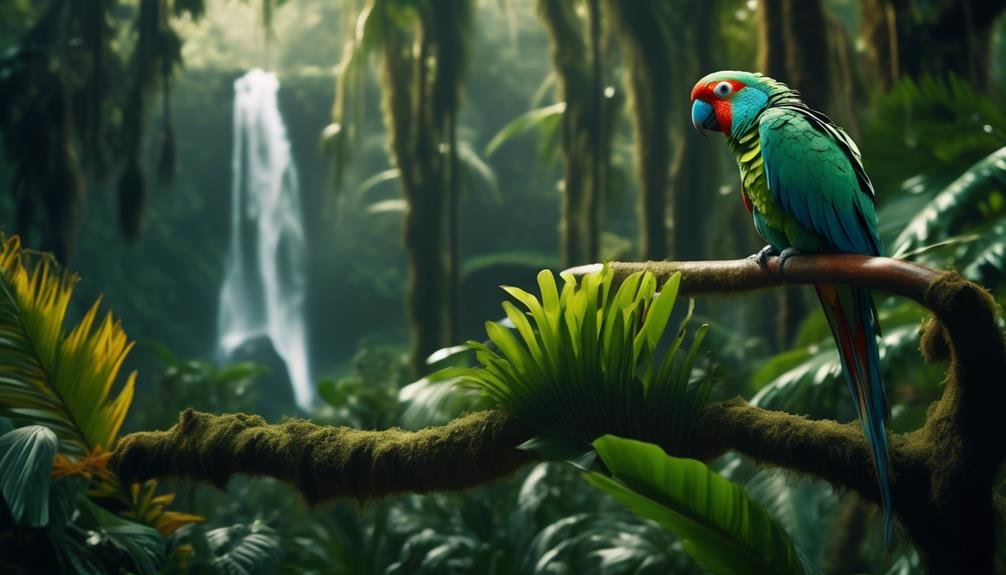
The destruction of natural habitats is posing a significant threat to the Orange Winged Amazon and other endangered parrot species.
- Deforestation: Large-scale clearing of forests for agriculture, logging, and urbanization is reducing the available habitat for these parrots.
- Fragmentation: The remaining forested areas are being fragmented into smaller patches, isolating populations and limiting their ability to find suitable nesting and foraging sites.
- Climate change: Rising temperatures and altered precipitation patterns are disrupting the delicate balance of ecosystems, affecting the availability of food and nesting resources for the parrots.
- Agricultural expansion: The conversion of land for agriculture, such as cocoa plantations, not only destroys natural habitats but also exposes parrots to increased risks of predation and hunting.
- Human activities: Illegal hunting, trapping, and trade of parrots further contribute to the decline of their populations, exacerbating the loss of natural habitat.
Addressing these factors is crucial for the conservation of the Orange Winged Amazon and other endangered parrot species.
Overexploitation for the Pet Trade
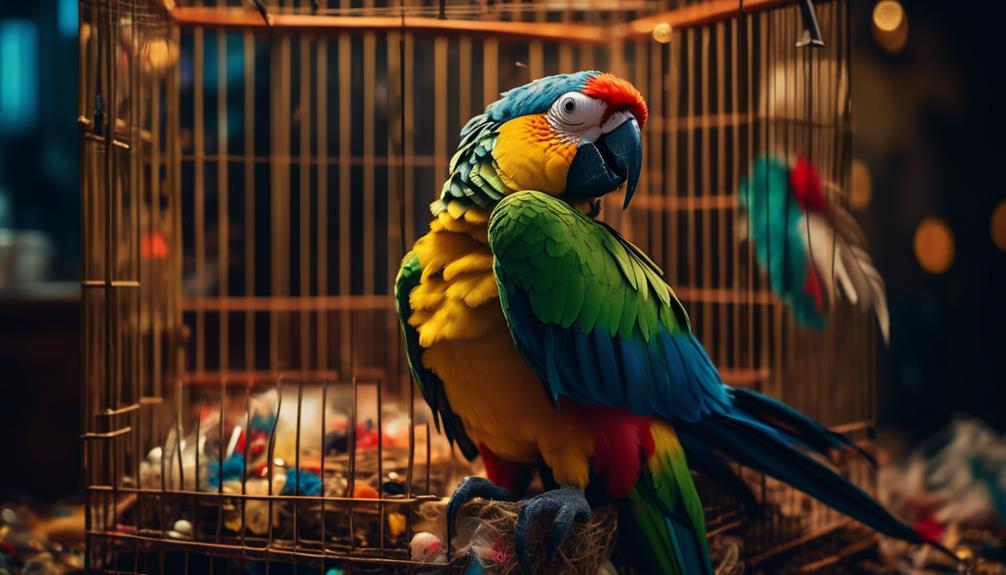
The relentless demand for exotic pets has fueled the overexploitation of the Orange Winged Amazon and other endangered parrot species, exacerbating their decline. These beautiful parrots have become highly sought after in the pet trade due to their vibrant colors and engaging personalities. Unfortunately, this demand has led to unsustainable levels of trapping and trading, pushing these species closer to extinction.
| Point/idea | Explanation |
|---|---|
| High demand | The popularity of Orange Winged Amazons as pets has resulted in a high demand for them in the international market. |
| Unsustainable trapping | The excessive trapping of these parrots from their natural habitats has put immense pressure on their populations. |
| Illegal trade | The illegal trade of Orange Winged Amazons and other endangered parrot species is a major concern, as it further contributes to their overexploitation. |
| Negative impact | The overexploitation for the pet trade has significant negative consequences for these parrots, including population decline and habitat disruption. |
| Conservation efforts | Conservation organizations and governments are working to combat the illegal pet trade and raise awareness about the importance of protecting these endangered parrot species. |
It is crucial that action is taken to address this issue and ensure the survival of these magnificent parrots.
Conservation Efforts and Initiatives
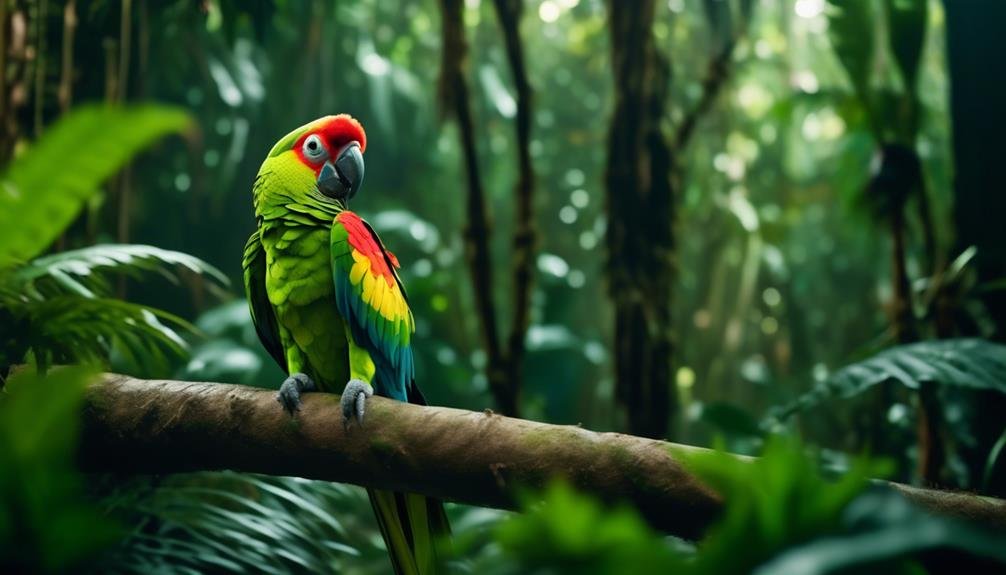
Are there any ongoing efforts to protect and conserve the endangered Orange Winged Amazon parrot species?
Yes, several initiatives and conservation efforts are in place to safeguard these beautiful birds:
- The establishment of protected areas: Governments and conservation organizations are working together to create protected areas in the native regions of the Orange Winged Amazon. These areas help preserve their natural habitat and provide a safe haven for the parrots.
- Community-based conservation programs: Local communities are actively involved in conservation efforts, including the monitoring of nest sites, conducting research, and raising awareness about the importance of protecting the species.
- Campaigns against illegal trade: International organizations are working to raise awareness about the illegal trade of Orange Winged Amazons and advocating for stronger regulations to combat this threat.
- Breeding programs in captivity: Zoos and breeding centers are playing a crucial role in breeding and reintroducing captive-bred birds into the wild, thereby increasing the population of the species.
- Research and monitoring: Scientists are conducting research and monitoring programs to better understand the behavior, ecology, and threats faced by the Orange Winged Amazon, which helps inform conservation strategies and interventions.
These combined efforts aim to ensure the survival and recovery of the endangered Orange Winged Amazon parrot species.
International Regulations and Policies
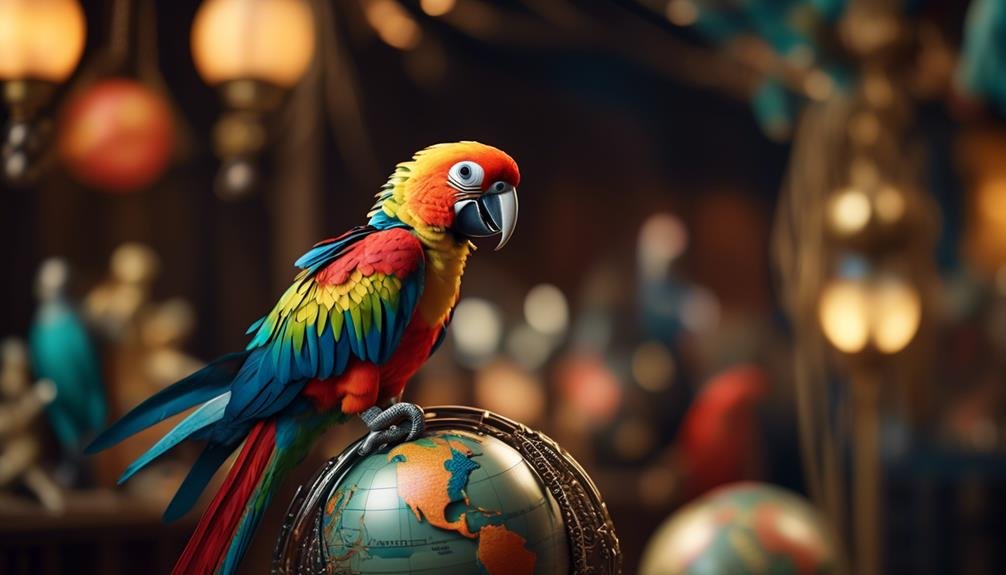
Efforts to protect and conserve the endangered Orange Winged Amazon parrot species extend beyond local initiatives, with international regulations and policies playing a crucial role. These regulations aim to control and monitor the international trade of endangered species, including the Orange Winged Amazon parrot, in order to prevent their decline. One such regulation is the Convention on International Trade in Endangered Species of Wild Fauna and Flora (CITES), which sets strict guidelines for the import and export of endangered species. Under CITES, the Orange Winged Amazon parrot is listed under Appendix II, meaning that international trade is allowed but strictly regulated. This helps ensure that the trade does not pose a threat to the survival of the species. Additionally, countries like Brazil and Venezuela have implemented their own laws and policies to protect the Orange Winged Amazon parrot within their borders. These international regulations and policies serve as important tools in safeguarding the future of this rare parrot species.
| International Regulations and Policies |
|---|
| – Convention on International Trade in Endangered Species of Wild Fauna and Flora (CITES) |
| – Strict guidelines for import and export |
| – Orange Winged Amazon parrot listed under Appendix II |
| – International trade allowed but strictly regulated |
The Role of Local Communities in Protecting Parrots
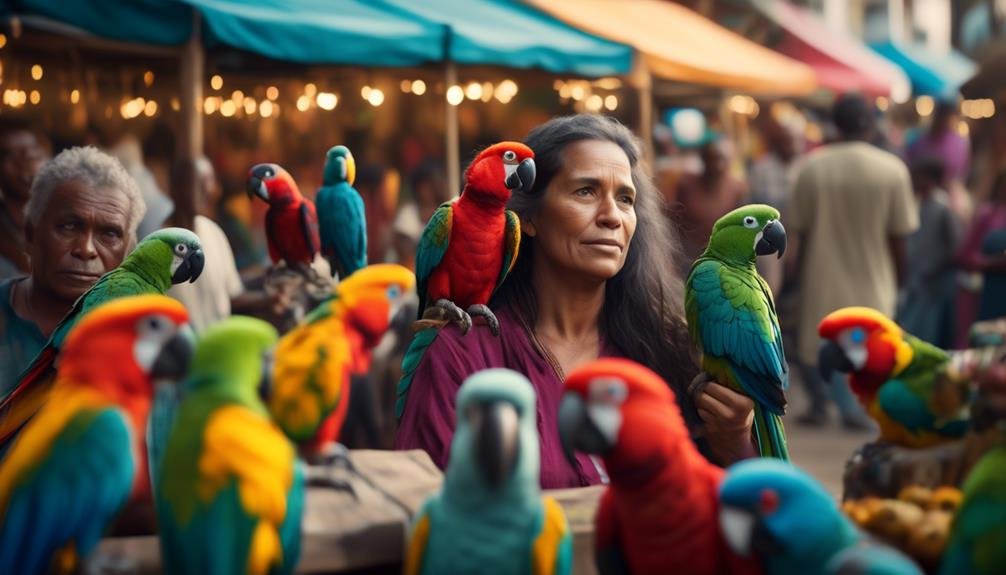
Local communities play a crucial role in protecting parrots from endangerment. Here are five ways in which they contribute to the conservation efforts:
- Habitat preservation: Local communities can protect parrot habitats by implementing conservation measures, such as establishing protected areas and reforestation projects.
- Awareness and education: By raising awareness about the importance of parrot conservation, local communities can encourage sustainable practices and discourage illegal trade.
- Monitoring and reporting: Community members can actively monitor and report illegal activities, such as poaching and smuggling, which pose a threat to parrots.
- Alternative livelihoods: Providing alternative income opportunities, such as ecotourism or sustainable agriculture, can reduce the reliance on parrot hunting and trade.
- Collaboration with authorities: Local communities can work closely with government agencies and conservation organizations to develop and enforce regulations that protect parrots and their habitats.
Importance of Education and Awareness
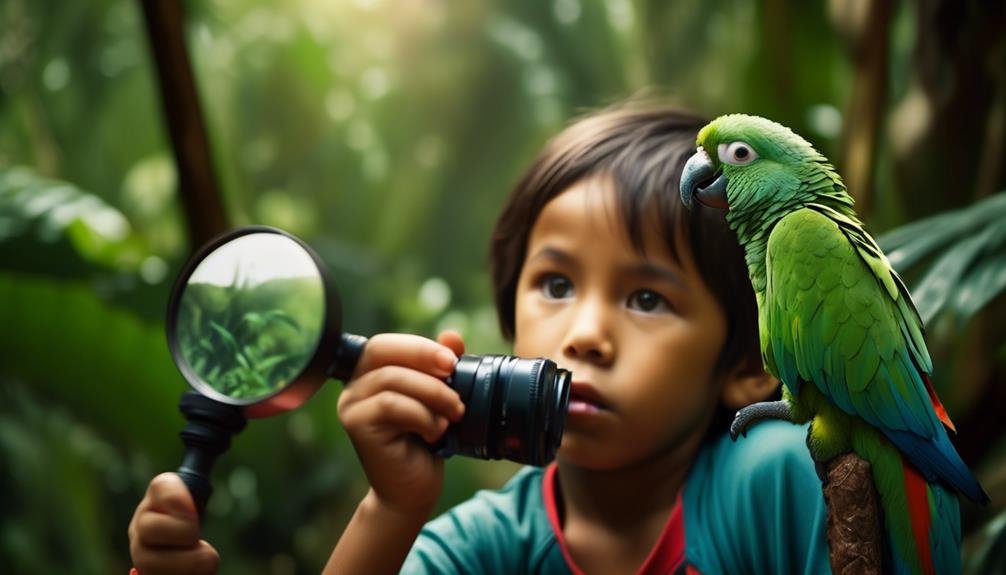
By understanding the crucial role of education and awareness, you can actively contribute to the conservation of threatened parrot species.
Education plays a vital role in raising awareness about the importance of protecting these birds and their habitats. With knowledge about the impact of international trade on parrot populations, you can make informed choices and support conservation efforts.
By sharing information with others and promoting responsible pet ownership, you can help reduce the demand for wild-caught parrots. Additionally, supporting organizations that work towards protecting parrots and their habitats through education programs and advocacy can make a significant difference.
Sustainable Alternatives to the Pet Trade
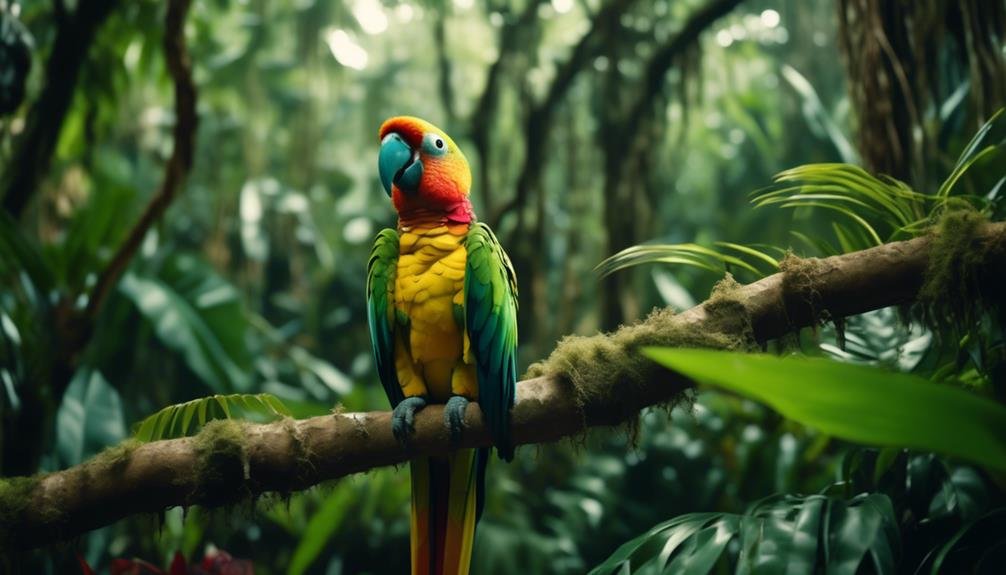
Consider supporting conservation organizations that promote sustainable alternatives to the pet trade. By doing so, you can contribute to the preservation of rare parrot species and help reduce the demand for wild-caught birds. These organizations focus on various initiatives to protect and conserve parrots, such as:
- Breeding programs: They establish and manage breeding programs to ensure a sustainable captive population of parrots, reducing the need for wild-caught individuals.
- Education and awareness: They conduct educational campaigns to raise awareness about the negative impacts of the pet trade on parrot populations and promote responsible pet ownership.
- Habitat conservation: They work towards preserving and restoring natural habitats of parrots, providing them with a safe and sustainable environment.
- Community engagement: They collaborate with local communities to develop alternative livelihoods that are compatible with parrot conservation, such as ecotourism or sustainable agriculture.
- Advocacy and policy: They advocate for stricter regulations and enforcement of laws against illegal wildlife trade, ensuring the protection of parrots in their natural habitats.
Conclusion and Call to Action
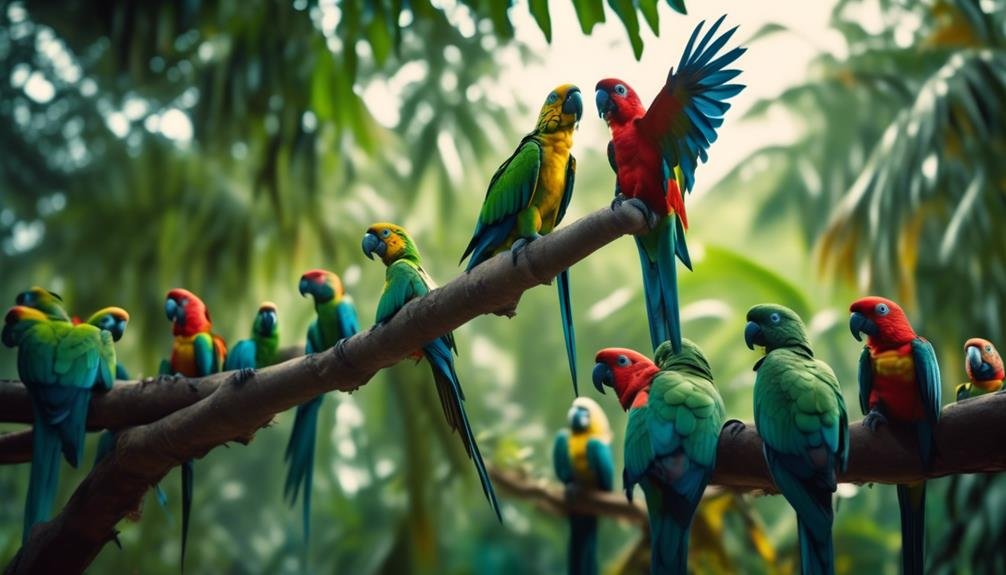
To protect threatened parrot species and promote their conservation, it is crucial that we take immediate action. The international trade of rare parrot species has had a devastating impact on their populations, pushing them closer to extinction. We must come together and implement measures to stop the illegal trade and ensure the survival of these beautiful birds.
Here are five key actions that need to be taken:
| Action | Description |
|---|---|
| Strengthen Legislation | Enact stricter laws and penalties for illegal parrot trade. |
| Increase Enforcement | Allocate more resources to combat wildlife trafficking and apprehend smugglers. |
| Support Conservation Efforts | Provide funding and resources to organizations working to protect parrot habitats and promote sustainable practices. |
| Promote Education | Raise awareness about the importance of parrot conservation and the impact of the pet trade on their populations. |
| Encourage Responsible Ownership | Promote responsible pet ownership and discourage the purchase of wild-caught parrots. |
Frequently Asked Questions
What Are the Common Characteristics of the Orange Winged Amazon Parrot?
The common characteristics of the orange winged amazon parrot are its size of approximately 13 inches, lifespan of up to 80 years, green body with yellow cheeks, blue forehead feathers, and orange tips on its wings.
How Do Orange Winged Amazon Parrots Communicate With Their Owners?
Orange Winged Amazon parrots communicate with their owners by being vocal and talkative. They can mimic sounds and repeat words. They also produce loud natural calls and enjoy interaction, fun, and playful behavior.
What Are the Native Regions and Habitats of the Orange Winged Amazon Parrot?
The native regions and habitats of the Orange Winged Amazon parrot are in South America, particularly in the central and northern parts of the continent. They thrive in regional forests, woodlands, and semi-open country.
What Is the Recommended Diet for Orange Winged Amazon Parrots in Captivity?
In captivity, feed your orange-winged Amazon parrot a balanced diet. Start with a commercial seed mix for Amazon parrots and add fresh fruits and vegetables. Avoid fatty or protein-rich foods to prevent obesity. Regular exercise is important too.
How Long Do Orange Winged Amazon Parrots Live in the Wild and in Captivity?
In the wild, Orange Winged Amazon parrots can live up to 80 years, while in captivity, they have the potential for a long lifespan as well. They are known as one of the long-lived parrot breeds.
How Does International Trade Impact the Captivating World of Senegal Parrots?
International trade has a significant impact on the captivating world of Senegal parrots. This trade can result in the illegal capture and trafficking of these beautiful birds, threatening their populations in the wild. It is crucial to promote ethical and sustainable trade practices to protect the future of Senegal parrots.
Conclusion
In conclusion, it’s crucial for us to recognize the dire situation faced by rare parrot species like the Orange Winged Amazon. The international pet trade has put these vibrant birds at risk, leading to habitat loss and illegal trafficking.
To protect their existence, stricter regulations, international cooperation, and education are needed. By taking action and raising awareness, we can work together to ensure the survival of these magnificent creatures for future generations.

